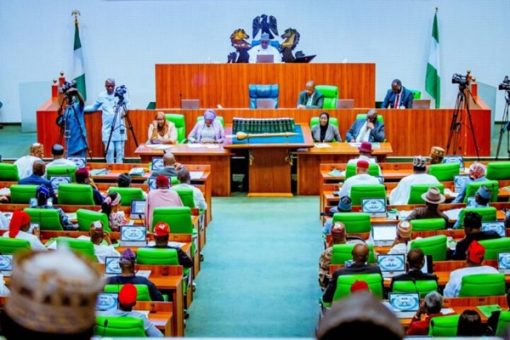The House of Representatives yesterday passed for second reading a Bill seeking to strengthen the recovery and management of proceeds of crime in Nigeria.
The Bill, sponsored by Yusuf Adams Gagdi (APC, Plateau), seeks to amend the Proceeds of Crime (Recovery and Management) Act No. 92 of 2022, to close identified legal and procedural gaps that have hindered effective implementation.
Leading debate on the general principles of the Bill, Gagdi recalled that the original Act was enacted to provide a uniform legal framework for the recovery, management, and disposal of assets derived from unlawful activities.
He described the law as a landmark piece of legislation in the fight against corruption, money laundering, and economic and financial crimes, but noted that “certain legal, procedural, and practical gaps have become apparent during implementation.”
According to him, these gaps have limited the Act’s effectiveness in facilitating non-conviction-based forfeiture, protecting whistleblowers, safeguarding witnesses, and ensuring speedy judicial processes.
Gagdi, who chairs the House Committee on Navy, explained that the amendment Bill aims to enhance accountability mechanisms, align Nigeria’s asset recovery system with global standards, and make the law more responsive to current realities.
“The fight against corruption and illicit financial flows must go beyond conviction-based recovery of assets,” he said. “Many cases of corruption and illicit enrichment cannot be prosecuted due to the death of suspects, flight from jurisdiction, or complex legal hurdles. Non-conviction-based forfeiture provides a crucial tool for recovering such assets, while ensuring due process and judicial oversight.”
He added that the proposed amendment will introduce clarity and procedural fairness in the handling of forfeiture orders, admissibility of evidence, and management of confiscated assets, including digital or virtual assets, in line with United Nations Convention Against Corruption (UNCAC) and Financial Action Task Force (FATF) standards.
The Bill also seeks to:
-
Establish whistleblowing and witness protection mechanisms under a new Section 81 of the Act;
-
Define clear timelines for hearing forfeiture applications to prevent abuse of court processes;
-
Recognise virtual assets by creating a National Confiscated Wallet for Virtual Assets, to be managed by the Central Bank of Nigeria; and
-
Strengthen inter-agency coordination for efficient and transparent management of forfeited properties.
Gagdi said the reform would also allow proceeds of forfeited assets to be used for victims’ restitution where applicable.
Describing the proposed amendment as “a forward-looking reform,” he said it would consolidate Nigeria’s anti-corruption framework, enhance transparency and accountability, and boost public confidence in the justice system.
“By supporting this Bill, we will be strengthening our national capacity to trace, recover, and manage proceeds of crime both within and outside our borders,” Gagdi said.





